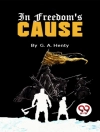In Joseph Conrad’s compelling novella, ‘The Return, ‘ readers are enveloped in a rich narrative that explores themes of alienation, identity, and the complexities of human relationships. Set against a backdrop of colonial landscapes, Conrad employs a vivid yet restrained literary style imbued with psychological depth. The story unfolds through the lens of a protagonist grappling with his past as he returns to a familiar environment, only to confront the dissonance between his memories and the present reality. This poignant exploration resonates within the broader context of Conrad’s oeuvre, reflecting his concerns about societal change and the enduring impact of colonialism. Joseph Conrad, a Polish-born author who became one of the foremost voices in English literature, often drew upon his own experiences as a sailor and his encounters with different cultures. This personal history not only informs the thematic richness of ‘The Return’ but also encapsulates his ongoing fascination with the human condition, marked by existential queries and moral ambiguity. Conrad’s ability to convey profound philosophical dilemmas within the framework of compelling narrative is a hallmark of his writing. This novella is highly recommended for readers who appreciate literature that probes the intricacies of the human psyche and the nuances of character interaction. ‘The Return’ stands as a testament to Conrad’s mastery, inviting reflection on the nature of belonging and the unyielding pull of one’s past, making it an essential read for both scholars and literary enthusiasts alike.
Over de auteur
Joseph Conrad, born Józef Teodor Konrad Korzeniowski (1857-1924), was a Polish-British novelist acclaimed for his narrative style and deep explorations of the human psyche. Although not widely celebrated during his lifetime, Conrad’s work has since earned distinguished recognition in the annals of English literature. Conrad’s seafaring years profoundly influenced his writing, evident in the nautical themes pervasive throughout his oeuvre. ‘The Return’, not one of his better-known works, nonetheless shares the psychological depth characteristic of his tales, delving into the complexities of marital relations and personal crisis. Conrad’s literary prowess is best displayed in his seminal works such as ‘Heart of Darkness’, an intense examination of imperialism and psychological disintegration, and ‘Lord Jim’, a narrative intertwining honor, and guilt. His writing, often described as impressionistic, frequently embodies an inherent darkness, reflecting his skepticism about civilization and human nature. Conrad’s pieces resonate with a sense of tragedy and existential dilemma, elements that later influenced many modernist writers. His contribution to literature extends beyond storytelling; he innovatively used English, his third language, with a distinctive style that combined a sense of classical structure with a modernistic approach to themes and characters. For this, Conrad is hailed not only as a literary bridge between the 19th and 20th centuries but also as a prescient observer of the human condition.












